
يلتزم قسم أمراض القلب لدينا بتقديم رعاية قلبية شاملة من خلال التشخيص المتقدم والعلاج المتخصص والدعم الرحيم. نركز على الوقاية من جميع أنواع أمراض القلب والأوعية الدموية وتشخيصها وإدارتها، لضمان حصول كل مريض على أعلى مستوى من الرعاية القلبية.
يستخدم فريقنا من أطباء القلب وفنيي القلب والممرضين ذوي الخبرة أحدث التقنيات للكشف عن حالات مثل مرض الشريان التاجي، وقصور القلب، وارتفاع ضغط الدم، واضطراب نظم القلب، وأمراض صمامات القلب وعلاجها. بدءًا من الفحوصات الروتينية والاختبارات غير الجراحية وصولًا إلى الإجراءات التدخلية المعقدة، نقدم رعاية قلبية متكاملة تحت سقف واحد.
نحن ملتزمون بتعزيز صحة القلب من خلال خطط العلاج الشخصية، والتوجيه بشأن نمط الحياة، والرعاية المستمرة - مما يساعدك على عيش حياة أقوى وأكثر صحة ونشاطًا.
تشمل خدمات طب الأسنان لدينا ما يلي:

حياتك هي الموضة الخاصة بك
فريقنا ، يقدم للمرضى خبرة متطورة للغاية ورعاية لمجموعة كاملة من الحالات والأمراض التي تؤثر على الجلد والأنسجة والشعر والأظافر. يعتمد المتخصصون لدينا على المنتجات الآمنة ، وأحدث التقنيات ، والرعاية السريرية المستمرة. الخبير لجنة من الطبيب في قسم تلبية كل من الأمراض الجلدية العامة وكذلك مستحضرات التجميل الخدمات لجميع الفئات العمرية.
لأمراض الجلدية - التجميل يحمل هدفه الرئيسي على الحفاظ على لون البشرة جيدة وتقديم تدابير فردية لحماية بشرتك من الأشعة فوق البنفسجية الشديدة الإشعاع وغيرها من العوامل التي تقلل من آثار الشيخوخة ويحمي الخاص بك البشرة من سرطان الجلد
تشمل خدمات الأمراض الجلدية لدينا ما يلي:
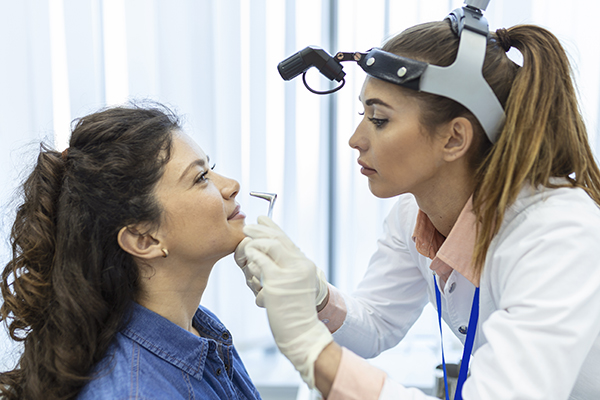
الأنف والأذن والحنجرة
يركز قسم الأنف والأذن والحنجرة لدينا الاهتمام على التشخيص المبكر والعلاج من الأمراض المتعلقة بالأذنين والأنف والجيوب الأنفية والفم والحلق والحنجرة. نحن نعمل بشكل وثيق مع الإدارات الصحية الأخرى للتخفيف من المعاناة من أمراض الجهاز التنفسي العلوي.
الإجراءات المكتبية
نحن نقدم مجموعة واسعة من الإجراءات القائمة على مكتب الأنف والأذن والحنجرة. لدينا المعدات المتطورة المناسبة وعالية الأطباء ذوي الخبرة لتوفير الراحة للمرضى. عندما يتم تنفيذ الإجراءات في المكتب ، معظم هذه الإجراءات يمكن القيام به مع الحد الأدنى من التخدير الموضعي والقضاء عليه الحاجة إلى التخدير العام. وهذا يعني مضاعفات أقل, انتعاش أسرع وفقدان وقت أقل في العمل أو المنزل.
وفيما يلي قائمة ببعض الإجراءات المستندة إلى مكتبنا التي يتم تنفيذها.
الأذن
الفحص المجهري والعمليات الجراحية البسيطة تحت التخدير الموضعي قياس السمع (اختبار السمع) طبلة الأذن (لتحديد أمراض الأذن الوسطى.) شفط دقيق للأذن (التنضير هو إزالة الأنسجة غير الصحية من الجرح.) إزالة الصملاخ مادة شمعية إزالة الاورام الحميدة تحت الذئبة المضادة للتخثر عن طريق الجراحية الصغيرة إزالة جسم غريب استئصال الجيوب الأنفية ، الخراجات إصلاح فص الأذن الجدرة الختان ثقب الأذن والتنسيب عيادة الدوارة (هو الإحساس بالدوخة الغزل)
الأنف
التنظير الجيوب الأنفية الصلبة / تلسكوب FESS الحد من كسر إصابات عظم الأنف إزالة الأجسام الغريبة الأنفية الكي من نزيف الأنف وعلاجاته علاج الحساسية الأنفية المزمنة ، الاورام الحميدة الصداع عيادة أنبوب PE بعد الرعاية ثقب الأنف والتنسيب
الحلق
تنظير الحنجرة إزالة جسم غريب بالمنظار الصرف كوينسي Frenuloplasty (الافراج عن اللسان التعادل) خزعة من الجلد والآفات عن طريق الفم اختبار الحساسية الغذائية والمواد المسببة للحساسية المحمولة جوا إجراءات الجلد البسيطة الكيس الختان
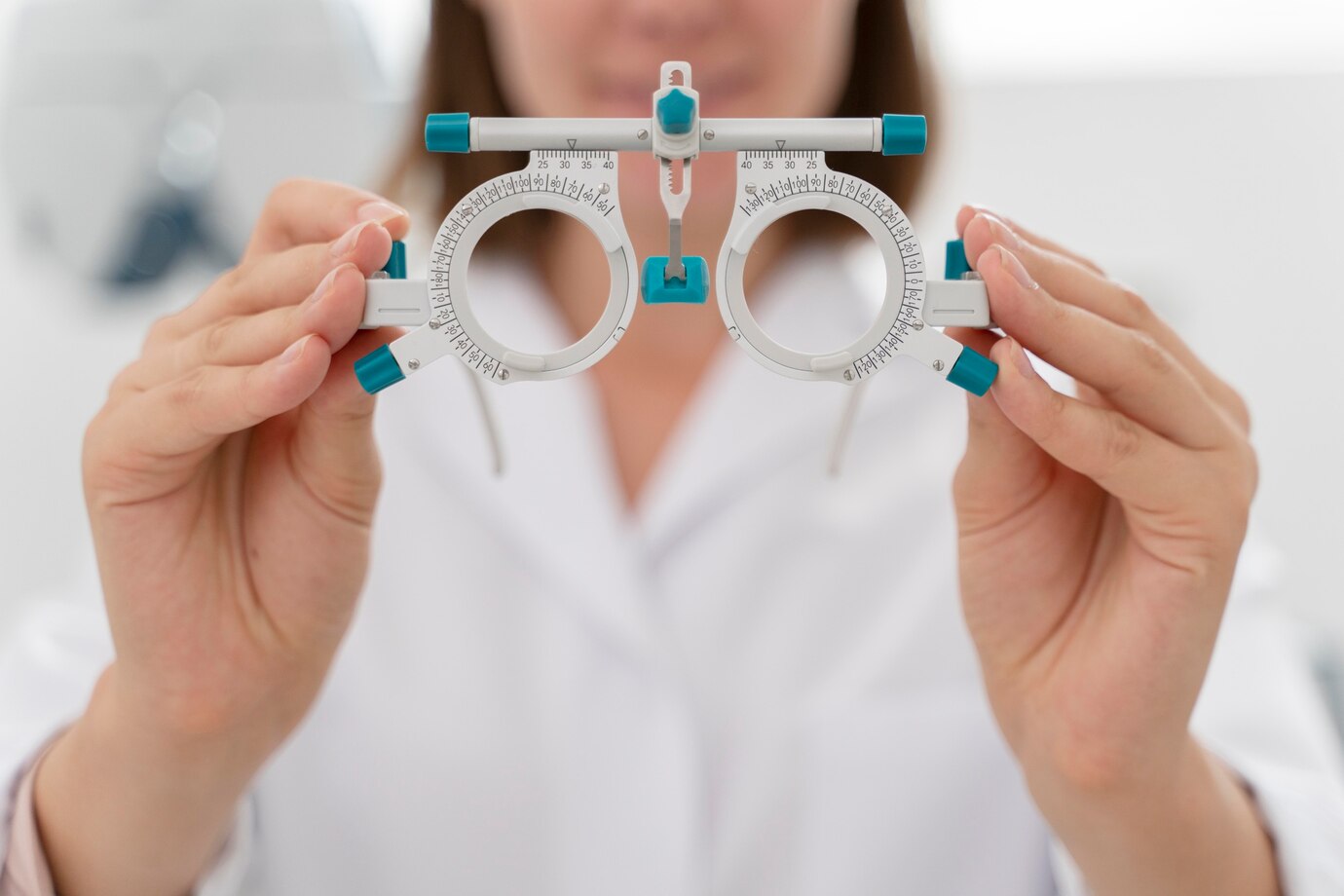
نحن تضفي الشكل على رؤيتك
قسم طب العيون يوفر التعاطف, الرعاية الحيلة والدقيقة للمرضى, تغطي جميع حالات العيون سواء كنت تحتاج إلى فحص العين الروتيني أو للعين المعقدة حالة قسمنا سوف تستخدم الأكثر تقدما التقنيات و المعدات لدعم احتياجات الرعاية الصحية الخاصة بك, مما يؤدي إلى جودة أعلى من الرعاية الشاملة
مع التركيز على الرحمة والكفاءة, لقد جعلنا من الأولوية السعي للتميز; هدفنا هو المساهمة في احتياجات المجتمع.
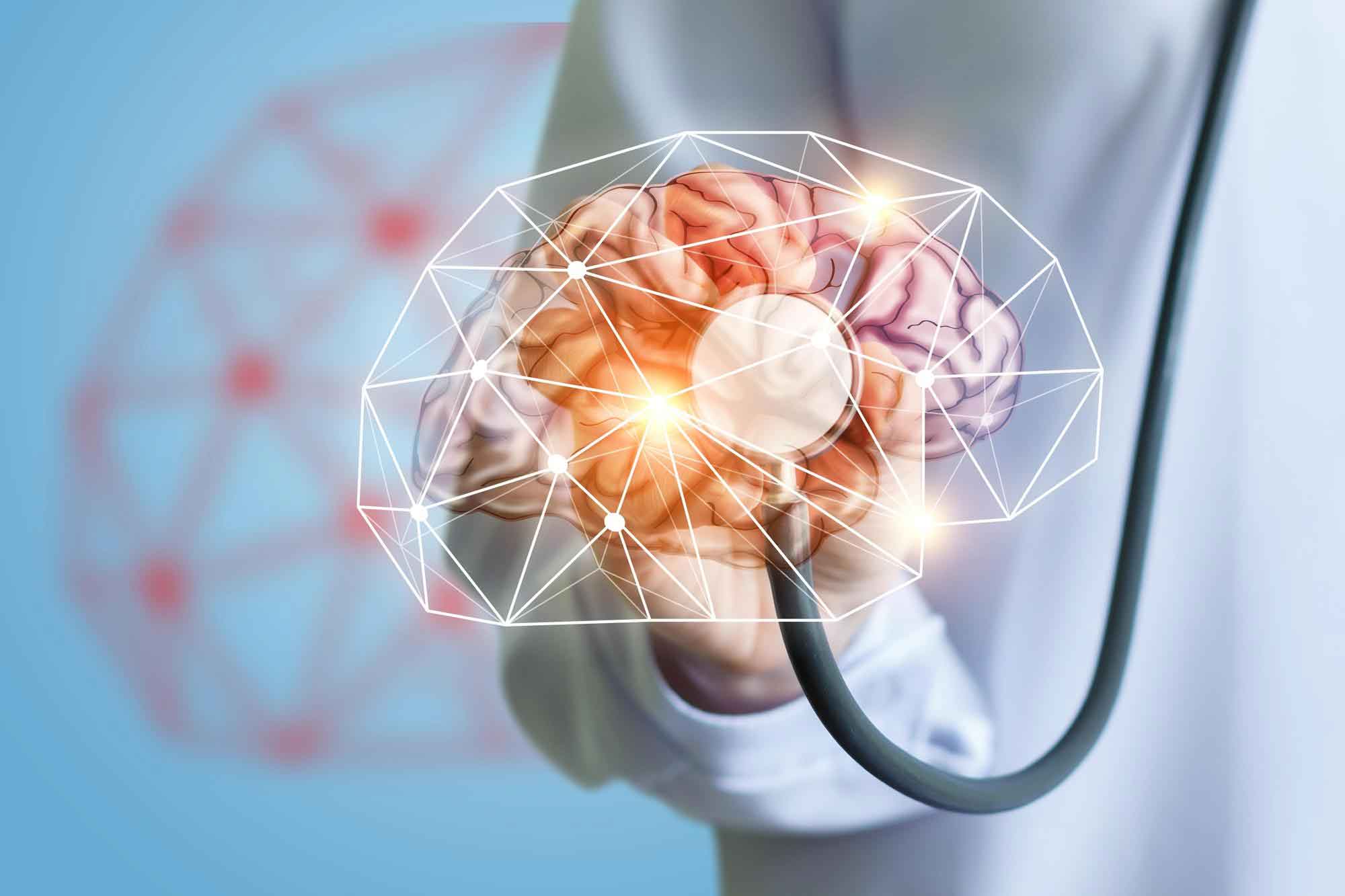
في قسم طب الأعصاب بمجموعة مترو الطبية، حيث تتم دراسة السيمفونية المعقدة للجهاز العصبي البشري وفهمها والعناية بها بأقصى قدر من التفاني والخبرة. يلتزم فريقنا المتخصص من أطباء الأعصاب بكشف تعقيدات الدماغ والحبل الشوكي والأعصاب الطرفية، ويسعى جاهداً لتحسين حياة مرضانا من خلال المعرفة الطبية المتقدمة والرعاية الرحيمة.
إن أطباء الأعصاب لدينا هم في طليعة التطورات الطبية، حيث يستخدمون تقنيات التشخيص المتطورة والعلاجات المبتكرة لمعالجة مجموعة واسعة من الاضطرابات العصبية.
إن شغفنا بالتميز العصبي لا يقابله إلا تفانينا في تقديم رعاية رحيمة وشاملة. يشرفنا أن نكون شركاء لك في التغلب على تعقيدات الجهاز العصبي، ونتطلع إلى خدمتك بنزاهة وخبرة والتزام لا يتزعزع لرفاهيتك.
الخدمات التي يقدمها قسم الأعصاب:

نسير نحو الازدهار والفرح
قسم العظام لدينا مخصص لرعاية المرضى من كل الأعمار و الدرجة التي تنطوي على حد سواء بسيطة ومعقدة الشروط التي تغطي جميع التخصصات الفرعية العظام.
لدينا مجموعة شاملة من الخدمات السريرية يكمل ويسعى إلى تحسين علاج مشاكل العضلات والهيكل العظمي. علاجنا ينطوي على طرق غير جراحية ، وتقديم المشورة الطبية, الأدوية ، يلقي ، والجبائر ، والعلاجات مثل ممارسة الرياضة أو أساليب الاسترخاء.
تشمل خدمات جراحة العظام لدينا:

بناء المستقبل
في Metro Medical Care ، نحن ملتزمون بتعزيز الصحة ورفاهية الأطفال من مرحلة الطفولة حتى سنوات المراهقة. خبرائنا المتخصصين في خلق علاج فعال خطة لكل الرضع والأطفال والمراهقين. المركز الصحي يوفر الرعاية السريرية المصممة خصيصا لاحتياجات الأطفال والعائلات. نحن نهتم لجميع أفراد الأسرة ، ويقضي الوقت الإجابة على الأسئلة والاستماع وأخذ الوقت لجعل خيارات العلاج واضحة ومفهومة.

التخدير هو ممارسة طبية تتضمن إعطاء الأدوية للحث على حالة قابلة للعكس من فقدان الوعي وفقدان الإحسا
س وعدم القدرة على الحركة من أجل الإجراءات الجراحية أو التدخلات الطبية الأخرى. الغرض من التخدير هو التأكد من أن المرضى مرتاحون وخالٍ من الألم وغير مدركين أثناء الإجراءات الجراحية أو العلاجات الطبية الأخرى التي قد تسبب عدم الراحة.
يتم توفير التخدير عادة من قبل طبيب التخدير أو طبيب متخصص في التخدير أو ممرض تخدير معتمد (CRNA) تحت إشراف طبيب التخدير. إنهم يعملون عن كثب مع الفريق الجراحي لضمان سلامة ورفاهية المريض طوال العملية.
هناك ثلاثة أنواع رئيسية من التخدير:
1. التخدير العام: هذا النوع من التخدير يسبب حالة من فقدان الوعي التام وفقدان الإحساس. يستخدم عادة في العمليات الجراحية الكبرى ويتضمن إعطاء الأدوية عن طريق الوريد وغازات التخدير المستنشقة. أثناء التخدير العام ، يتم مراقبة العلامات الحيوية مثل معدل ضربات القلب وضغط الدم ومستويات الأكسجين عن كثب.
2. التخدير الموضعي: يستخدم التخدير الموضعي لتخدير منطقة معينة من الجسم ، مثل الذراع أو الساق أو منطقة أكبر مثل البطن. وهي تشمل تقنيات مثل التخدير النخاعي ، والتخدير فوق الجافية ، وحجب العصب المحيطي. مع التخدير الموضعي ، قد يظل المريض مستيقظًا أو يتلقى التخدير ، اعتمادًا على الإجراء وتفضيل المريض.
3. التخدير الموضعي: يتم استخدام التخدير الموضعي لتخدير منطقة صغيرة ومحددة من الجسم ، عادة عن طريق الحقن بالقرب من مكان العملية. يستخدم بشكل شائع في العمليات الجراحية البسيطة أو إجراءات الأسنان أو الاختبارات التشخيصية ، ويسمح للمريض بالبقاء مستيقظًا وواعيًا أثناء الإجراء.
التخدير هو تخصص طبي معقد يتطلب تقييمًا دقيقًا للتاريخ الطبي للمريض وحالته الجسدية واحتياجاته
الفردية. يراقب مقدمو التخدير باستمرار العلامات الحيوية للمريض ومستويات الأكسجين والمعلمات الأخرى أثناء الإجراء لضمان سلامتهم وإجراء أي تعديلات ضرورية.
من المهم ملاحظة أن التخدير يحمل بعض المخاطر والآثار الجانبية المحتملة ، والتي تتم إدارتها بعناية
من قبل فريق التخدير. قبل الخضوع لأي إجراء يتضمن التخدير ، يخضع المرضى عادةً لتقييم ما قبل الجراحة لتقييم مدى ملاءمتهم للتخدير ومناقشة أي مخاوف أو أسئلة قد تكون لديهم

المشاركة في ابتكار أفضل الابتسامات
تغطي إجراءات طب الأسنان الجيدة لدينا جميع الفروق الدقيقة في خدمات طب الأسنان مع كامل التركيز على الجودة والنظافة والبيئة. لدينا مختبر التكنولوجيا الفائقة يشمل المنتجات والتقنيات و الخدمة التي توفر أطباء الأسنان والمختبرات كاملة الحل الاستفادة منه في بيئة ودية مما يضمن أن فالمريض يشعربانه في المنزل ، خالية من المخاوف وقبل كل شيء خلق الوعي حول استفسارات الأسنان وتثقيف مرضانا
تشمل خدمات طب الأسنان لدينا
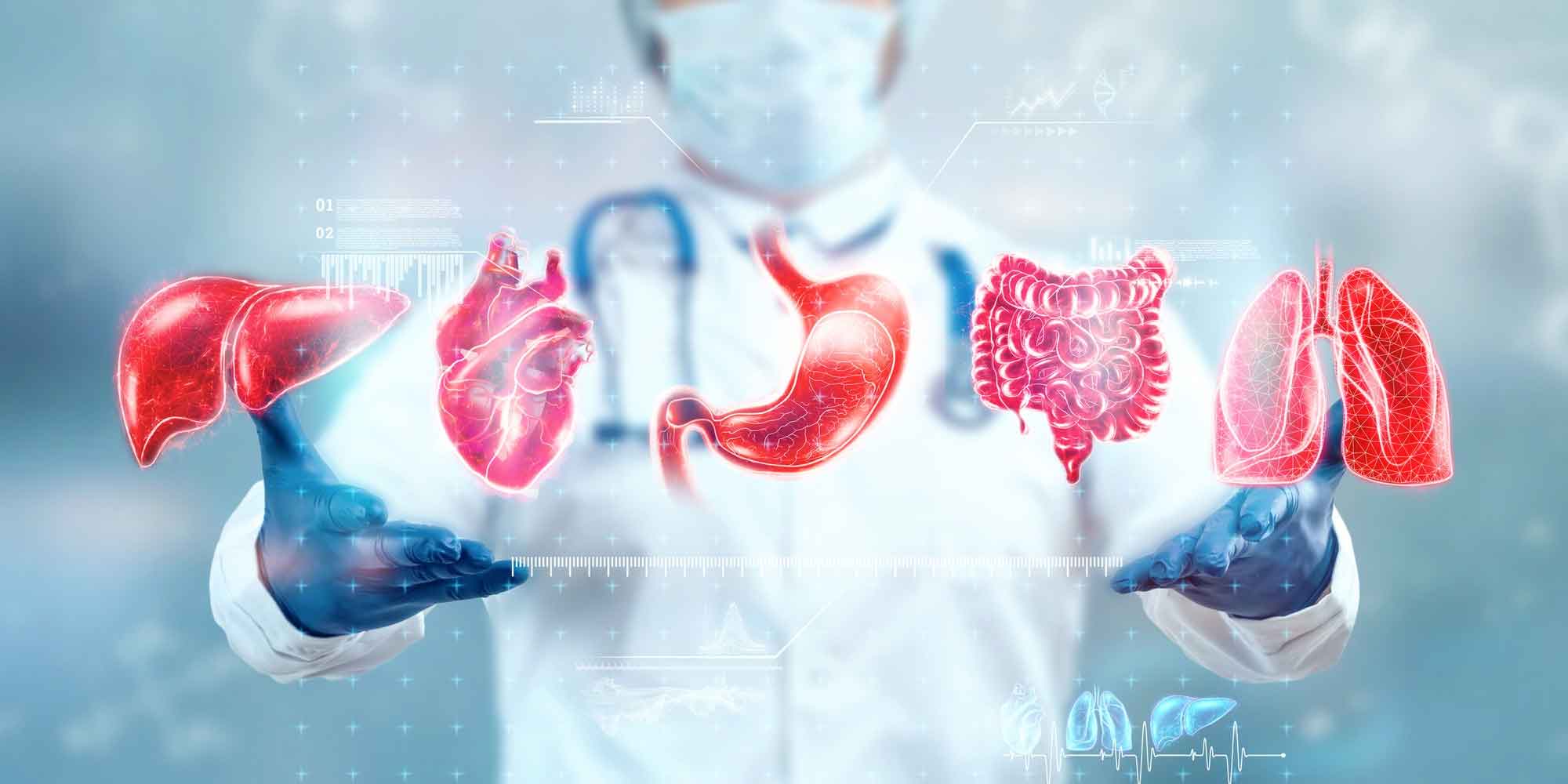
إن قسم الطب الباطني ماهر في الإدارة من المرضى الذين لديهم عملية نظام غير متمايزة أو متعددة. تلعب رعاية الباطنية للمرضى الإسعافيين دورا رئيسيا في صحة المريض وعلاجه.
يقدم القسم أحد أفضل البرامج مع مختلف المسارات بما في ذلك العلوم السريرية, طب الشيخوخة الصحية وصحة المرأة ورعاية المرضى عالية الجودة.
تشمل خدمات الطب الباطني لدينا ما يلي


طب الأسرة ، الذي يشار إليه عادة باسم ممارسة الأسرة ، هو فرع من فروع الطب يركز على توفير رعاية صحية كاملة للأشخاص والعائلات من مختلف الأعمار والأجناس والأمراض. يُشار إلى ممارسي طب الأسرة بأطباء الأسرة أو أطباء الأسرة. الهدف الرئيسي لطب الأسرة هو تقديم علاج مستمر وفريد وشامل للمرضى يأخذ في الاعتبار صحتهم الجسدية والعقلية والعاطفية. أطباء الأسرة مؤهلون لتقديم الرعاية الوقائية والتثقيف الصحي والعلاج لمجموعة واسعة من الاضطرابات الحادة والمزمنة. غالبًا ما تكون نقطة الاتصال الأولية للأشخاص الذين يسعون للحصول على رعاية طبية هي ممارس طب الأسرة. إنهم مؤهلون لتحديد وعلاج مجموعة واسعة من المشكلات الطبية ، من الأمراض الحادة مثل الأنفلونزا ونزلات البرد والالتهابات إلى الأمراض المزمنة مثل السكري وارتفاع ضغط الدم والربو. كما يقدمون الاستشارات الصحية الأساسية والتطعيمات والاختبارات والفحوصات المنتظمة. يركز أطباء الأسرة بشدة على إقامة اتصالات دائمة مع مرضاهم بالإضافة إلى امتلاكهم لفهم واسع من الطب. يركزون على فهم البيئة المعيشية للمريض وديناميكيات الأسرة والمتغيرات الاجتماعية التي قد تؤثر على صحتهم. قد يقدم أطباء الأسرة رعاية فردية ويضعون خطة علاج شاملة تأخذ في الاعتبار متطلبات وتفضيلات المريض الخاصة بفضل هذا النهج الذي يركز على المريض. يتم تثقيف أطباء الأسرة لتنسيق العلاج عبر التخصصات الطبية المختلفة. كثيرًا ما يُنظر إلى طب الأسرة على أنه تخصص رعاية أولية. عند الضرورة ، يمكنهم التوصية بالمرضى للخبراء وتمثيل اهتمامات هؤلاء المرضى في نظام الرعاية الصحية. بشكل عام ، يعد طب الأسرة ضروريًا لتوفير الرعاية الصحية الأساسية وتعزيز العافية والوقاية من الأمراض وعلاج مجموعة واسعة من الاضطرابات الطبية للأفراد والأسر والمجتمعات.

كثيرًا ما يعمل الجراحون العامون على المريء والمعدة والأمعاء الدقيقة والقولون والمستقيم والشرج ، من
بين أجزاء أخرى من الجهاز الهضمي. كما أنهم يعتنون بمشاكل الكبد والمرارة والبنكرياس. قد يتم أيضًا إجراء عمليات جراحية لنظام الغدد الصماء ، بما في ذلك الغدة الدرقية والغدة جارات الدرقية ، وكذلك الثدي والجلد والأنسجة الرخوة والفتق.
بمقارنة الجراحة بالمنظار بالجراحة المفتوحة ، هناك عدد من المزايا المحتملة ، بما في ذلك عدد أقلمن الشقوق ، وألم أقل وتندب ، وإقامة أقصر في المستشفى ، وأوقات تعافي أسرع. تشمل العمليات الشائعة التي يقوم بها الجراحون بالمنظار استئصال الزائدة الدودية بالمنظار ، واستئصال المرارة بالمنظار (إزالة المرارة) ، وإصلاح الفتق بالمنظار ، واستئصال القولون بالمنظار (استئصال القولون).
يلعب كل من الجراحين العامين وجراحي المناظير دورًا مهمًا في توفير الرعاية الجراحية لمجموعة واسعة من الحالات ، ويعتمد الاختيار بين الجراحة المفتوحة والجراحة بالمنظار على عوامل مختلفة ، بما في ذلك حالة المريض ، وتعقيد الإجراء ، وخبرة الجراح .

نحن نقدم الرعاية التي تركز على المريض والأسرة
يدعم قسم التوليد وأمراض النساء في Metro Medical Care النساء طوال رحلتهن مدى الحياة من مرحلة المراهقة, تنظيم الأسرة, عمر الحمل لانقطاع الطمث وما بعده. يتضمن نهجنا القائم على الفريق ما يلي أنت كشريك في الرعاية والشفاء لبناء أسر صحية ومستقبل أفضل.
قسم جنبا إلى جنب مع الأطباء سمعته الطيبة وذوي الخبرة, الممرضات المعتمدات والقابلات والأطباء والموظفين المساعدين جنبا إلى جنب مع التكنولوجيا المتطورة يعزز الرعاية حول كل مريض و عائلتها لتلبية احتياجاتهم على أفضل وجه.
التخصصات

يتخصص قسم التغذية في مجموعة مترو الطبية في تعزيز الصحة والعافية من خلال خطط النظام الغذائي الشخصية والإرشادات الغذائية المتخصصة. يقدم فريقنا من خبراء التغذية وأخصائيي التغذية المؤهلين حلولاً غذائية قائمة على الأدلة ومصممة خصيصًا لتلبية الاحتياجات الفردية، سواء للصحة العامة أو إدارة الوزن أو إدارة الأمراض المزمنة أو الحالات الطبية المتخصصة.
خطة النظام الغذائي والاستشارة:

في حين تلتزم التميز في رعاية المرضى والخدمة. تم تجهيز قسم الأشعة لدينا مع معدات جودة وانوعية ويقود من قبل فريق من الأشعة المؤهلين والفنيين
نحن نعمل بشكل وثيق مع الإدارات الأخرى والمتخصصة لتوفير الوقت المناسب, التشخيص والعلاج الدقيق والفعال ، وتوفير مرضانا مع إحالة التفسيرات التخصصية الثاقبة للطبيب وكذلك الإبلاغ السريع عن النتائج الحاسمة
التخصصات
الأشعة السينية (الرقمية)
التصوير بالموجات فوق الصوتية (3D+4D)
دوبلر الالوان
خدمات الموجات فوق الصوتية

Urology:
Urinary stone, Prostate Problem, Urinary infection, Ultrasound Scan for urological disease,
Uroflowmetry ( To measure the Urinary Flow Rate), CT-Scan and MRI Diagnosis for Urinary problems, Surgical treatment- basic urology treatment.
Andrology
Male Infertility, Male Several infections, Piezowave 2(a new technique for the treatment of ED, Surgical treatment for basic andrology patients.
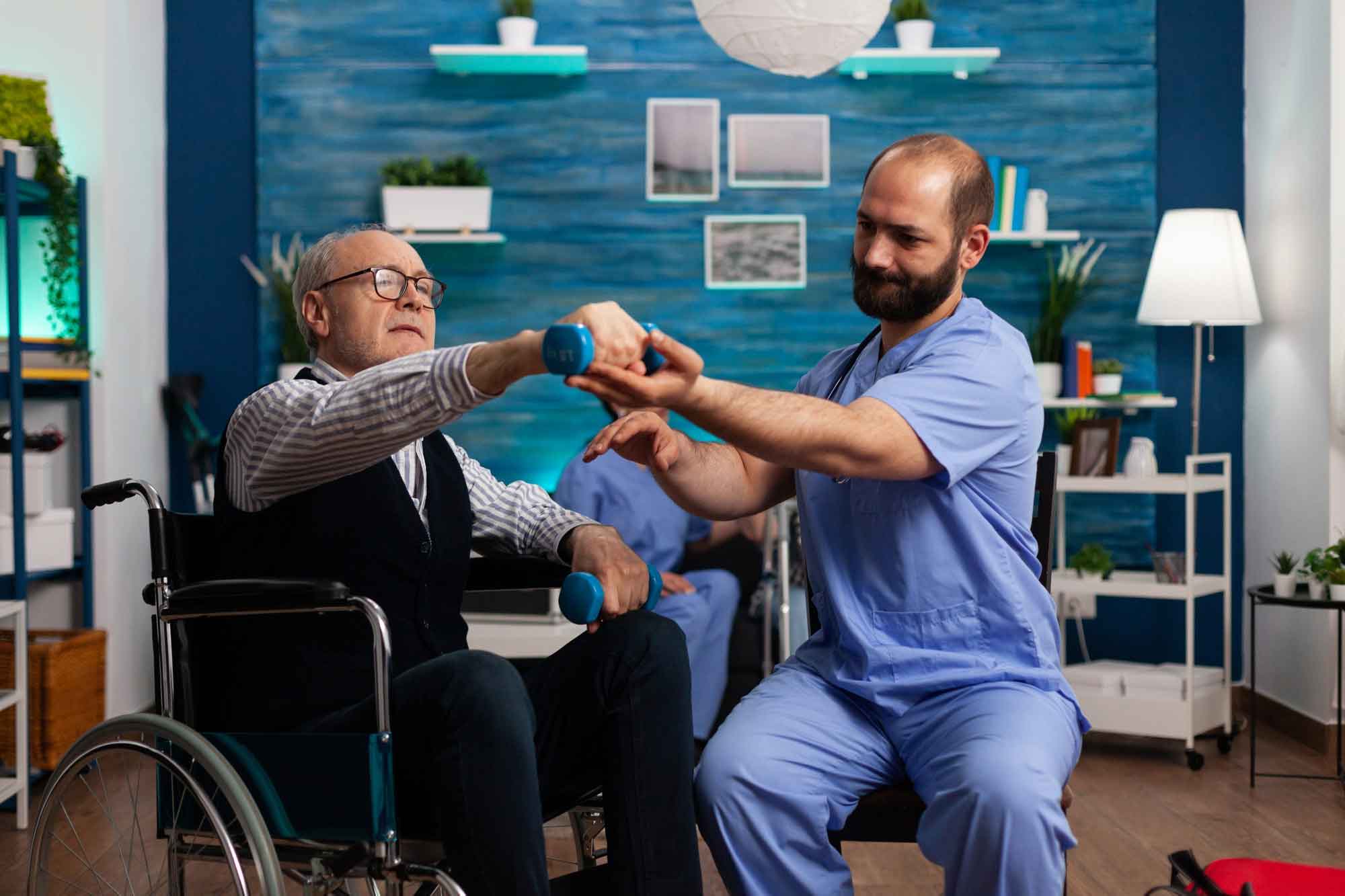
يكرس قسم الطب الفيزيائي وإعادة التأهيل جهوده لمساعدة المرضى على استعادة قوتهم وقدرتهم على الحركة واستقلاليتهم بعد الإصابة أو الجراحة أو المرض. نقدم رعاية متكاملة للحالات التي تؤثر على العضلات والعظام والأعصاب والمفاصل، ونوفر لكم مسارًا للتعافي يركز على تحسين جودة حياتكم.
مع فريقنا المتعاطف من أطباء العلاج الطبيعي وأخصائيي العلاج الطبيعي وخبراء إعادة التأهيل، نصمم خطط علاج شخصية تجمع بين العلاجات المتقدمة وأجهزة إعادة التأهيل الحديثة والدعم المستمر. سواء كنتم تتعافين من سكتة دماغية أو إصابة رياضية أو مشكلة في العمود الفقري أو ألم مزمن، يعمل أخصائيونا عن كثب معكم لاستعادة وظائفكم الجسدية، وإدارة الألم، ومساعدتكم على العودة إلى أنشطتكم اليومية بثقة.
في مستشفانا، نؤمن بأن كل خطوة نحو التعافي مهمة. هدفنا هو إرشادكم خلال رحلة إعادة تأهيل سلسة وفعالة - لتتمكنوا من الحركة بشكل أفضل، والشعور بالقوة، وعيش حياتكم على أكمل وجه.
تشمل الخدمات الأساسية للطب الفيزيائي وإعادة التأهيل ما يلي:

يقدم قسم أمراض الجهاز الهضمي لدينا رعاية شاملة لجميع اضطرابات الجهاز الهضمي، مع التركيز على المعدة والأمعاء والكبد والبنكرياس والمرارة. نلتزم بتشخيص وعلاج والوقاية من مجموعة واسعة من أمراض الجهاز الهضمي بدقة وعناية فائقة.
بقيادة أطباء متخصصين في أمراض الجهاز الهضمي والتنظير الداخلي ذوي الخبرة، يستخدم فريقنا أدوات تشخيصية متطورة وتقنيات طفيفة التوغل لضمان نتائج دقيقة وعلاجات فعالة. نعالج حالات مثل ارتجاع المريء، والقرحة، ومتلازمة القولون العصبي، والتهاب الكبد، وحصوات المرارة، وداء الأمعاء الالتهابي (IBD) من خلال خطط رعاية شخصية مصممة خصيصًا لتلبية احتياجات كل مريض.
في مستشفانا، نجمع بين الرعاية الطبية المتخصصة وراحة المريض وثقته. من التشخيص المبكر إلى الإجراءات العلاجية المتقدمة، هدفنا هو مساعدتك في الحفاظ على صحة جهازك الهضمي وجودة حياة أفضل.